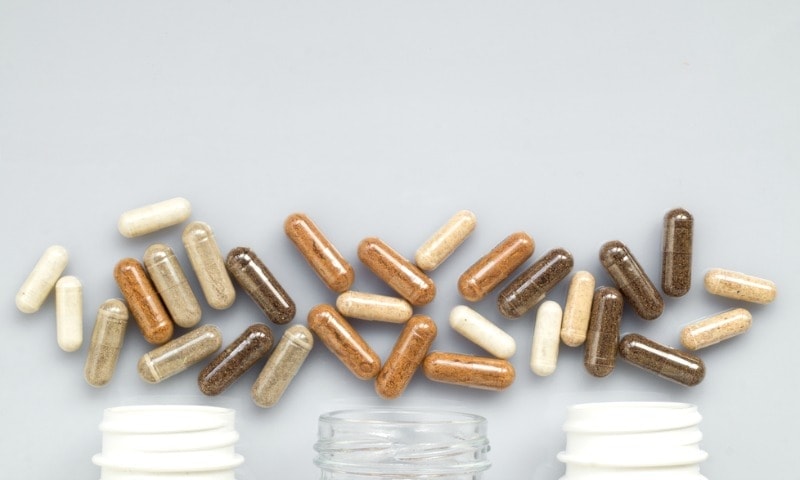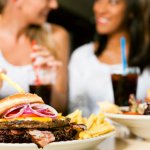One of the key concerns about plant-based diets (vegan and vegetarian) is if they supply the organism with enough vitamins and minerals. A simple answer is that with thorough planning and exact calculations it is possible to avoid the deficit or macro- and microelements and to do without supplementing. However, if the diet isn’t planned carefully enough, there is a risk to get an insufficient amount of essential nutrients. Vegetarians are prone to risks of missing out on iron and vitamin B12, while vegans should pay attention to calcium, iron and vitamin B12. Iron deficiency is more common for women due to naturally explained blood losses.

The recommendation to avoid supplements in vegetarian and vegan diet can do more harm than good. It makes sense to undergo lab blood tests to check the levels of the essential elements, which are in the risk group, before supplementing. However, in most cases the body can store the necessary amount of the substance and excrete the excess amount (if any).
Here are TOP 5 supplements to consider, if you are a vegetarian or a vegan
- Vitamin D
This deficit of this fat-soluble vitamin is extremely common worldwide. This is dangerous, as this vitamin improves calcium and phosphorous absorption and impacts the formation of bones, participates in metabolic reactions and normalizes sleep. Vitamin D is essential for healthy immunity, mood, cognitive abilities and muscle restoration. The RDA in Canada and the US for kids and adults is 600 IU (which equals to 15 mcg) daily. People over 60, pregnant and breastfeeding women should increase their daily intake of Vitamin D up to 800 IU (which equals to 20 mcg) daily. In addition, sunbathing is effective too. An effective portion of the sun is at least 15 minutes with no sun protection in the afternoon in the warm season (then the UV index outside is higher than 3).
Vegan and vegetarian diets are not very rich in vitamin D, so supplements and foods with added vitamin D are recommended to avoid severe deficit associated with disturbed body functions and increased risks of injuries.
- Vitamin B12
There is a common belief that Vitamin B12 is animal-based and is not contained in plant-based foods. A small dosage of it can be found in nori, spirulina, chlorella, nutritional yeast and some mushrooms grown under special conditions. However, these sources are not enough, what is proven by multiple clinical studies. According to these studies, vegans and vegetarians suffer from severe B12 vitamin deficit more often than omnivores.
Vitamin B12 is a must-have for important internal processes of the body, such as protein metabolism, red blood cells formation and nervous system support. Lack of B12 leads to nervous system disturbances, infertility and diseases of internal organs. The RDI for Canada and the USA is 2.4 mcg daily for adults, 2.6 mcg daily for pregnant women and 2.8 mcg daily for breastfeeding moms.
- Omega-3
For vegans and vegetarians the key attention should be paid to long-chain omega-3 fatty acids. They are classified as essential substances for normal body functioning, as the organism cannot produce them on its own. This way the only way to get enough omega-3 is to digest from foods or supplements.
Long-chained omega-3 is extremely important for brain and eyes. They assist in fighting inflammations, depression and help prevent ADHD and even breast cancer. Plant-based foods rich in omega-3 are flaxseeds, chia seeds, walnuts, soy beans and hemp seeds.
When buying an omega-3 supplement, consider the dosage of EPA and DHA in the contents. The more – the better. Studies show that these substances play the greatest role in all the processes, where omega-3 fatty acids are involved.
There is no official RDA recommendation, but healthcare specialists consider 200-300 mg of a supplement with EPA and DHA (Omega-3) daily to be enough for a healthy body functioning. In addition, vegans and vegetarians are suggested to limit their omega-6 consumption due to limiting the intake of corn, soy, sunflower, sesame and some other oils.
- Iodine
Iodine is an essential mineral for a healthy thyroid function and metabolism control. Iodine deficiency during pregnancy and early infancy can result in a dangerous health condition – irreversible mental retardation. Lack of iodine in adults may lead to hypothyroidism. Its manifests itself through fatigue, dry and damaged skin, forgetfulness, weight gain, tingling in hands and feet.
Vegans and vegetarians are prone to iodine deficiency (up to 50% lower iodine levels in blood in comparison to omnivores). The RDA in the USA and Canada is 150 mcg of iodine daily. Pregnant women are recommended to get 220 mcg of iodine on a daily basis, and increase the consumption to 290 mcg during breastfeeding.
Foods rich in iodine include seafood, seaweed and dairy. A lot of foods are fortified with iodine: like salt or bread. But a guaranteed way to avoid iodine deficit in vegans and vegetarians is to supplement it.
- Iron
Lack of iron is dangerous, as it may lead to anemia – a condition, when the body is unable to carry enough oxygen to tissues with the blood. The most common symptoms include fatigue and decreased immune function.
The RDA for Canada and the US is 8 mg of iron daily for men and women after the menopause. Adult women should aim for 18 mg of iron daily, women with heavy period bleeding should consult their healthcare provider for an individual recommendation. In pregnant women the norm is increased up to 27 mg of iron daily.
Iron can be found in plant-based products, but there it exists in its non-heme form. Heme form can be found in animal-based products, and this type is much better absorbed by the body (a few times better).
Vegans and vegetarians should be cautious, when it comes to iron deficiency. It makes sense to include more iron-rich foods like beans, peas, nuts, seeds and dried fruits. Supplements with iron can be found on our website.



